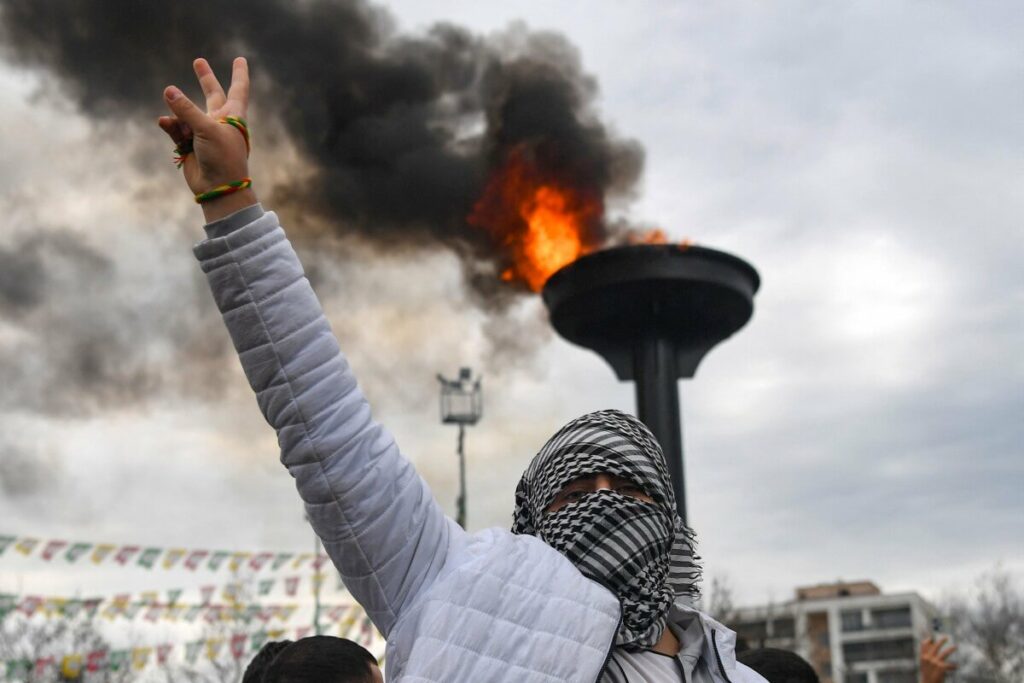One hundred sixty-six people, including 38 minors, were detained by police at the pro-Kurdish Peoples’ Equality and Democracy Party’s (DEM Party) Nevruz celebration held in the majority-Kurdish city of Diyarbakır on Thursday, according to local media reports.
Among the thousands who participated in Thursday’s event in Bağlar were DEM Party Co-chair Tuncer Bakırhan, main opposition Republican People’s Party (CHP) Diyarbakır MP Sezgin Tanrıkulu and Kurdish politician Leyla Zana, who made her first public appearance in seven years. Mehmet Öcalan, the brother of imprisoned Kurdistan Workers’ Party (PKK) leader Abdullah Öcalan, was also present at the celebration.
A total of 166 participants were detained for allegedly spreading propaganda for the outlawed PKK, listed as a terrorist organization by Turkey and much of the international community, by shouting slogans and wearing clothes symbolizing the group.
The Diyarbakır Bar Association’s Center on Children’s Rights on Friday announced on X that 38 minors were detained for “disseminating propaganda for a terrorist organization” due to wearing traditional clothes.
1- Diyarbakır ilinde, 21.03.2024 tarihinde gerçekleştirilen Newroz kutlamaları için barışçıl toplanma ve gösteri hakkı kapsamında alana gelen çocukların maruz bırakıldığı keyfi ve hukuk dışı uygulamaları kabul etmiyoruz.+
— Diyarbakır Barosu Çocuk Hakları Merkezi (@dbcocukhaklari) March 22, 2024
They underlined that the minors were exercising their “right to peaceful assembly and demonstration” by attending the event when they were subjected to arbitrary and unlawful practices by law enforcement officers.
The center stated that after the identification procedures were completed for the detained minors, they were handed over to their families to be referred to a juvenile case prosecutor during office hours in the following days.
Nevruz is traditionally marked by Kurds in the second half of March as the first day of spring, with colorful celebrations across the country’s predominantly Kurdish southeast. However, Nevruz celebrations, which have a highly symbolic meaning for Kurds, have often been marred by heavy-handed police intervention and become the target of criminal investigations for speeches that are made and banners that are displayed during the festivities.
In some cases, people were even detained over clothing featuring the yellow, red and green colors of the PKK, which has been waging a bloody campaign in Turkey’s southeast since 1984.
Turkey’s counterterrorism laws are often criticized by rights groups and international observers for being overly broad, allowing authorities to interpret social affiliation as terrorist links and speech as terrorist propaganda.
Kurdish politicians and activists commonly face accusations of membership in or spreading propaganda on behalf of the PKK in their speeches and online commentary or attendance at events.
Many Kurds, who make up about a fifth of Turkey’s estimated 85 million population, say they face significant discrimination in the country.

